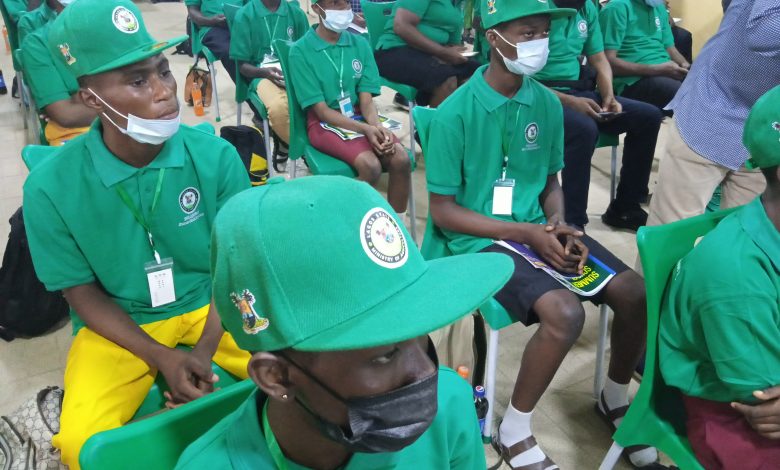
According to the World Food Programme, WFP and Food and Agriculture Organisation, FAO, early warnings on acute food insecurity: August to November 2021 outlook, 23 countries, Including Nigeria are facing escalating food insecurity. https://doi.org/10.4060/cb6054en
The report indicates that Covid-19 pandemic, climate crises and in the case of Nigeria, rising violence across the northern part of the country, violent clashes between herders and farmers in other parts and persisting inflation are likely to drive up acute food shortages over the next four months.
Lagos, Nigeria’s most populous city and Africa’s fastest growing mega city is not immune from this challenge.
In the last ten to fifteen years, consecutive administrations in Lagos State have been making efforts to boost food production through joint ventures with other States of the Federation and human capacity development of residents, especially the youths
While some of the programmes embarked upon are stop-gap measures others are long term, and many of these have endured, despite the change of baton in governance.
One of the enduring programmes is the the Lagos Agricultural Summer School programme currently in it’s tenth year.
Introduced in 2011, nearly five hundred and fifty Secondary school students and about ninety-eight teachers of agricultural science and Agric Education Officers have been trained in the course of the programme which holds for two weeks during the long holidays.
On the reason for the programme which had stood the test of time, the Permanent Secretary in the Ministry of Agric, Mr Adeniji Kazeem said it was aimed at encouraging the youths to grow into a more productive labour force and to a reasonable extent, solve the problem of unemployment as well as mitigate the possible effects of the global food shortage.
“Really sensitizing them to take Agriculture as a business venture, not just as academic knowledge or for vocational studies, but a big business and once their internet is sustained at younger age, when they grow up, they become Agripreneurs, which is our target, but beyond that, we need to start replacing our aging farmers and the best time to start is to catch them young, start with students in Secondary Schools” Mr Adeniji said.
He said despite the ongoing covid-19 pandemic, the programme was not stopped, but a shortened version was held for students in batches at Lagos State Agricultural Development Authority Complex, Oko-Oba, Agege, instead of the usual two-week residential on–farm Summer School training within the premises of the Agricultural Training Institute in Araga, Epe.
How impactful has this Programme being in the last ten years? A 2017 beneficiary who is currently an undergraduate in the Department of Fisheries, University of Lagos, Miss Misturah Ahmed said she was influenced to study her course during the summer camp.
“Though there were other aspects of Agriculture that we spoke about like poultry, piggery, crop cultivation, cassava and cucumber plantation, i actually love that, but fisheries stuck out for me, we were at the hatcheries and I saw those small small things, I was curious and was wow, this is wonderful” she said
Some of those who participated in this year’s summer camp also shared the impact the programme has had on them.
“It is a very great opportunity and I can never forget it, just this little experience, I wan to be a lawyer, but I will also put farming into it. I love planting, i have gained a lot. Some of the students shared with Radio Nigeria.
The excited students who are returning to School this week promised that they would share the knowledge and experience gained at the Agricultural Summer School with their peers.
The Director of Agric Services, Mrs Abiola Ayoade who expressed confidence that the programme had over the years enabled many students to understand more about agriculture as a subject and to see that agriculture, when well-managed, is a reputable and profitable business venture, said in a couple of years, Lagos would be reaping the fruits of investing in and stimulating the interests of youths in the sector.
Discover more from Radio Nigeria Lagos
Subscribe to get the latest posts to your email.




